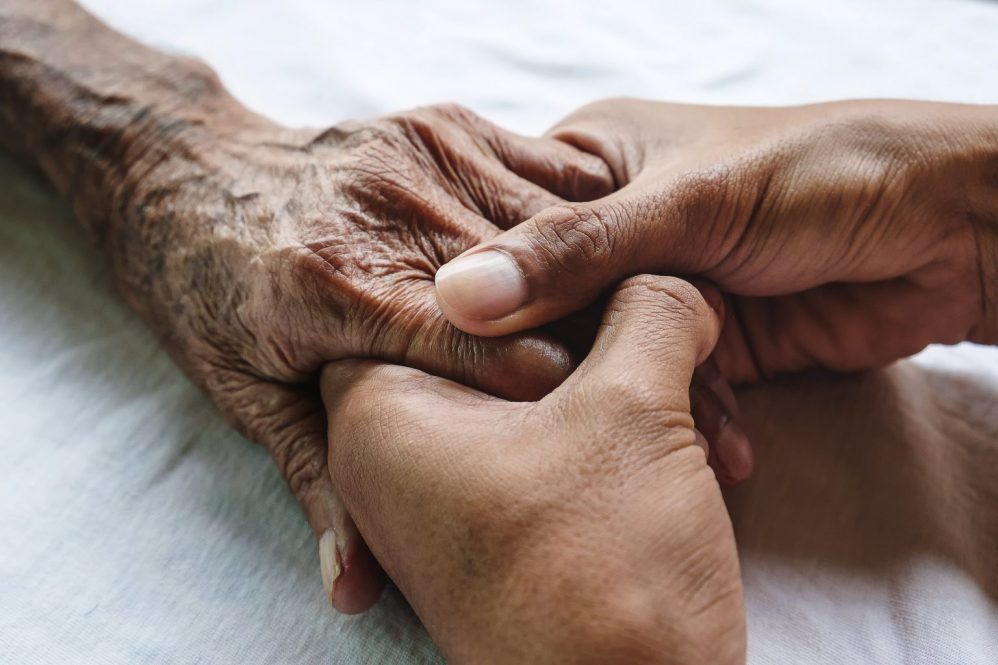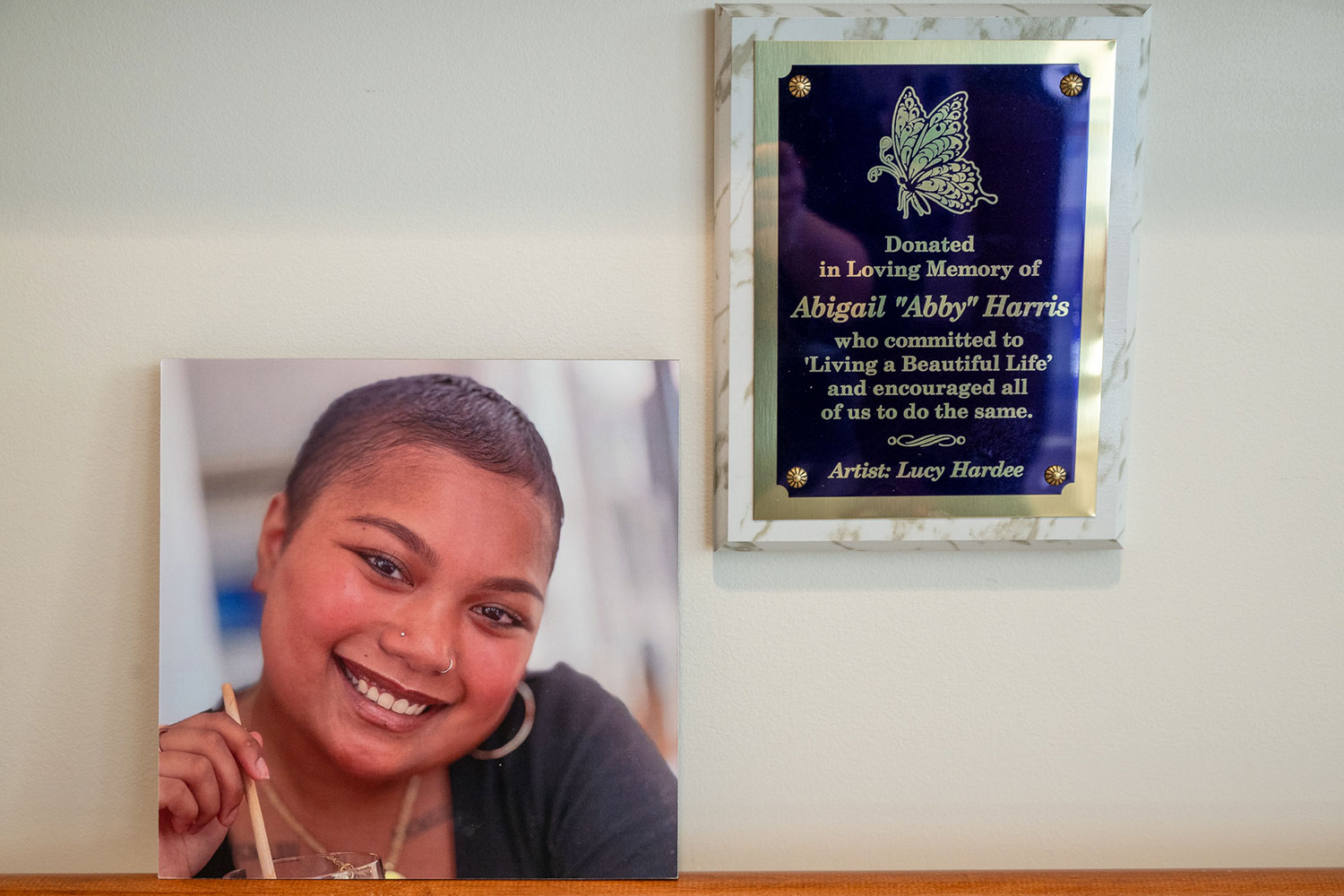Caring for someone with Alzheimer’s or another dementia takes on special meaning during the month of November. November is not only National Alzheimer’s Disease Awareness Month, but National Family Caregivers Month.
According to the Alzheimer’s Association, more than 11 million Americans provide unpaid care for people with Alzheimer’s or other dementias. In 2020, these caregivers provided an estimated 15.3 billion hours of care valued at nearly $257 billion.
Ferranti, 78, was a dietician for 35 years in New York. Her family started to notice that her memory was beginning to decline and she was getting lost about five years ago and moved her to Connecticut to live with Farmer and her family.
Farmer is blessed to have her husband, daughter, siblings, and neighbors to help her with her caregiving responsibilities for her mom.
“It takes a village,” says Farmer.
She’s also grateful her mother is easygoing and enjoys her Christian television shows, but like anyone with dementia, can become easily overwhelmed if there is too much activity. Farmer likes to get her out in her wheelchair when the weather is nice.
Caregiver burnout is an epidemic in this country. Women comprise more than 60 percent of caregivers of Alzheimer’s patients, and many are in the “sandwich” generation – caring for their ailing parents as well as their own children, in addition to juggling work and other responsibilities. Many caregivers have to give up their jobs in order to provide unpaid care to their loved one. Caregiving is both physically and emotionally stressful.
“It’s important to make time for yourself, you have to make yourself a priority,” says Farmer “It’s a challenge, but has its rewards and is a new adventure, I’m the mother now.”
The holiday season can cause mixed feelings for a family affected by Alzheimer’s disease or other dementia.
While typically a time for celebration, families may experience a sense of loss for the way things used to be. For caregivers, the holidays may create added work. By adjusting your expectations and modifying some traditions, you may find meaningful ways to celebrate holidays.
Dr. Richard Fortinsky, Professor and Health Net, Inc. Endowed Chair in Geriatrics and Gerontology at UConn Center on Aging suggests the following tips from the National Institute of Health to help the person with dementia and their family enjoy the holidays:
Celebrate holidays that are important to you.
- Include the person with Alzheimer’s as much as possible.
- Set your own limits, and be clear about them with others. You do not have to live up to the expectations of friends or relatives. Your situation is different now.
- Involve the person with Alzheimer’s in simple holiday preparations or have him or her observe your preparations. Observing you will familiarize him or her with the upcoming festivities. Participating with you may give the person the pleasure of helping and the fun of anticipating and reminiscing.
- Consider simplifying your holidays around the home. For example, rather than cooking an elaborate dinner, consider a smaller dinner with close family. Instead of elaborate decorations, consider choosing a few select items.
- When health and safety provisions allow, encourage friends and family to visit even if it’s difficult. During COVID-19, follow CDC’s physical distancing guidelines for all visits. Limit the number of visitors at any one time. Plan visits when the person usually is at his or her best. Virtual visits through video or phone calls are also a great way to connect over the holiday season.
- Prepare quiet distractions to use, such as looking at pictures or going for a walk, if the person with Alzheimer’s becomes upset or overstimulated.
- Make sure there is a quiet space where the person can rest and have time to recharge.
- Try to avoid situations that may confuse or frustrate the person with Alzheimer’s, such as changes in routine and strange places.
- Try to stay away from noise, loud conversations, loud music, lighting that is too bright or too dark, and having too much rich food or drink (especially alcohol).
- Find time for holiday activities you like to do. For example, go for a walk in the neighborhood and look at holiday decorations, or bake holiday cookies.
- If you receive invitations to events that the person with Alzheimer’s cannot attend, consider going yourself. Ask a friend or family member to spend time with the person while you’re out.
Holiday Home Safety Tips
- Holiday decorations, such as Christmas trees, lights, or menorahs, should be secured so that they do not fall or catch on fire.
- Anything flammable should be monitored at all times, and extra precautions should be taken so that lights or anything breakable are fixed firmly, correctly, and out of the way of those with Alzheimer’s disease.
- Candles should never be lit without supervision. When not in use, they should be put away.
- Try to avoid clutter, especially in walkways, during the holidays.
Preparing Guests
- Explain to guests that the person with Alzheimer’s disease does not always remember what is expected and acceptable. Give examples of unusual behaviors that may take place such as incontinence, eating food with fingers, wandering, or hallucinations.
- If this is the first visit since the person with Alzheimer’s became severely impaired, inform people ahead of time what they can expect. The memory-impaired person may not remember guests’ names or relationships but can still enjoy their company.
- Explain that memory loss is the result of the disease and is not intentional.
- Stress that the meaningfulness of the moment together matters more than what the person remembers.
Preparing the Person with Alzheimer’s
- Here are some tips to help the person with Alzheimer’s disease get ready for visitors:
- Begin showing a photo of the guest to the person a week before arrival. Each day, explain who the visitor is while showing the photo.
- Arrange a phone call for the person with Alzheimer’s and the visitor. The call gives the visitor an idea of what to expect and gives the person with Alzheimer’s an opportunity to become familiar with the visitor.
- Keep the memory-impaired person’s routine as close to normal as possible.
- During the hustle and bustle of the holiday season, guard against fatigue and find time for adequate rest.
The Alzheimer’s Association offers a 24/7 Helpline, 365 days a year. If you should have questions or need assistance they can be reached at 800.272.3900.



